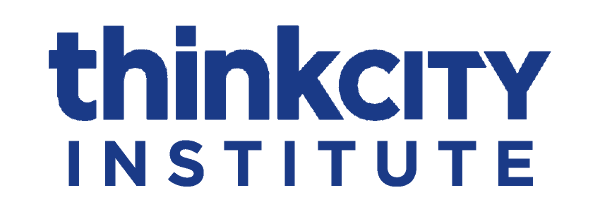Sustainable Heritage Management masterclass
BUILDING A LEGACY
I. OVERVIEW
What is success in heritage management? State-of-the-art conservation of an abandoned building? Revival of a long-lost traditional practice? Increasing number of visitors to the site? Improved local well-being? Ensuring the sustainability of upkeep and future maintenance of heritage properties? All of these and some more.
Even before the recent global pandemic, climate change, disasters and conflicts, there has been a push for the heritage sector to expand its boundaries and rethink its priorities.
Sustainable heritage management now calls for innovations leading to value creation not just value conservation.
The Sustainable Heritage Management Masterclass aims to learn from success stories in the region and unveils the various competences that ensure the vibrancy of these heritage sites. In this masterclass, the case-method of learning is further enriched by direct inputs from the project teams whereas the facilitators highlight opportunities of problem solving by applying newly-acquired knowledge and skills. The Masterclass covers knowledge and skills in the UNESCO Competence Framework for Cultural Heritage Management.
Masterclass 1 on Building a Legacy
Cheong Fatt Tze Mansion,
George Town World Heritage Site, Penang, Malaysia
This first Masterclass will explore how Laurence Loh and Loh-Lim Lin Lee unlocked the potential of the iconic Cheong Fatt Tze Mansion, which won the Most Excellent Project in the 2000 UNESCO Asia-Pacific Awards for Cultural Heritage Conservation. Through the case discussion, we will discover how Laurence and Lin Lee successfully sustained the viability of the heritage building for over 20 years. We will learn how their management model evolved in the context of various challenges and opportunities, including the World Heritage inscription of George Town.
II. COURSE OBJECTIVES
Using UNESCO’s newly-developed Competence Framework as a reference, the Sustainable Heritage Management Masterclass will dissect the success factors of a heritage management case and uncover the competences that had been required.
Course Objective:
Ensuring short-term and long-term sustainability of heritage properties through strategic (business) planning and competence-based capacity development.
Learning Outcomes:
By the end of this course, participants should be able to:
- Acquire new competences (skills and knowledge) relevant to cultural heritage management, with a focus on the managerial competences (such as human capital management, financial management, information management, communication/collaboration/coordination)
- Apply analytic thinking and problem solving tools in a heritage management context
- Develop business models and strategic planning for heritage properties.
III. FACILITATORS
James S L Yong
James S L Yong heads JYGlobal Associates, a small, independent consulting outfit which focuses on strategy, innovation, tech management, business models and process streamlining for organizations. JYGlobal was formed in 2014 and has worked for selected clients in government, telecommunications, IT and non-profit sectors. Prior to founding JYGlobal, James spent 10 years in Cisco Systems (USA), in a regional role as Director, Public Sector Programs (ASEAN). During that time, he focused on Cisco’s transformational and strategic accounts in government. He engaged with senior leadership levels in public sector and helped to conceptualise models and procedures to improve productivity, enhance collaboration, and improve public services. James has a Bachelors degree in Computer Science and a Masters in Business Systems Analysis & Design, both from the City University, London, UK. He has a postgraduate diploma in Accounting & Finance. He has also attended executive programs at the Harvard Kennedy School of Government and the London Business School.
His recent interests are in history & heritage, genealogy, travel, reading, writing, photography and technology gadgets. He has been actively involved with the Sarawak Heritage Society (SHS) since 2016 and is currently the President. SHS is a non-government, non-partisan and non-profit organization, focused on raising awareness of cultural heritage and advocating for the proper management of heritage assets of Sarawak. James is currently working on a book on the history of Padungan, an important heritage area within Kuching, capital of Sarawak, Malaysia.
Neel Kamal Chapagain
Dr Neel Kamal Chapagain is an Associate Professor and the Director of Centre for Heritage Management, Ahmedabad University. He is an architect by training and lately focused on heritage management education. He has played a key role in designing the Masters in Heritage Management programme at Ahmedabad University, and teaches courses on heritage discourses, ethics, global heritage frameworks, among others. He has been also been selected to as a part of instructors team to develop MOOC course on Living Heritage for UNESCO. Recently elected in the executive board of the Association for Critical Heritage Studies (ACHS), he also is in the boards of Asian Academy of Heritage Management and Asia Pacific Higher Education Network for safeguarding Intangible Cultural Heritage.
His publications include a co-edited volume on Asian Heritage Management (co-edited with Dr Kapila Silva, Routledge, 2013), and a publication series on Reflections from Built Environment and Associated Practices (Tribhuvan University, Nepal). Prior to joining Ahmedabad University to develop the Masters in Heritage Management programme, his academic engagements were with University of Wisconsin-Stevens Point as well as University of Wisconsin-Milwaukee from where he received his PhD. He was an Asian Development Bank – Japan Government Fellow for his studies at the University of Hawaii at Manoa and the East West Centre, through which he obtained his Architecture Doctorate and Graduate Certificate in Historic Preservation. He is also an alumnus of ICCROM as well as Tribhuvan University (B.Arch.), Nepal.
IV. CLASS FORMAT
Sustainable Heritage Management Masterclass is a combination of a self-paced online learning and interactive tutorial sessions. It involves plenary discussions, group work and mentoring. At the end of the class, you will receive feedback on your work from the fellow classmate teams, facilitators, and the organizers.
Class format is divided into the following:
- Self-learning
- Live interactive sessions
- Group work
The self-learning component is comprised of a case study, lecture videos, guiding questions, curated readings and worksheets that are accessible via Think City Institute website. Participants must engage with these materials and complete the tasks required at their own time and pace before attending the interactive tutorial sessions.
The live interactive sessions are real-time online sessions that will take place on the specified dates and times (please refer to the detailed course schedule in the following section). Plenary discussions, group presentations and Q&A sessions will take place during these live sessions. Attending the live interactive sessions is a requirement to completing the course successfully. Participants are expected to engage actively in conversations with fellow classmates and facilitators during these sessions.
Group work is an essential part of the Sustainable Heritage Management Masterclass. Participants will be assigned to a group of 5-6 participants to work on a group assignment together. Instructions and worksheets including assignment templates will be available via Think City Institute website. All groups are to collaborate on completing the assignment on their own time and pace during the “Self-learning & Group work” period.
Office Hours will be organized for sharing progress and Q&A.
This course comes to an end with the groups submitting their final work and presenting it to class at the last live interactive session. During this session, groups will receive feedback on their work from class facilitators and organizers. Participants will also be asked to share their reflections on taking part in the course and how they plan to apply the skills that have been learned to their own projects/sites.
Participants that have completed this course successfully, subject to full attendance of the course sessions and submission of the required assignments, will receive a certificate of completion.
V. READING AND REFERENCE MATERIALS
Theme: Reorienting Heritage Practice, Competence-based capacity building for sustainable heritage management
Required
UNESCO Competence Framework for Cultural Heritage Management https://bangkok.unesco.org/content/competence-framework-cultural-heritage-management-user-guide-essential-skills-and-knowledge.
Hosagrahar, Jyoti. “Cultural Heritage and the 2030 Agenda for Sustainable Development.” In Asia conserved, vol. III: lessons learned from the UNESCO Asia-Pacific Heritage Awards for Culture Heritage Conservation, 2010-2014, edited by William Chapman, 4–11. Bangkok; Nanjing: UNESCO; Southeast University Press, 2019. https://unesdoc.unesco.org/ark:/48223/pf0000374412.
Wilkinson, Sara; The Context for Building Resilience through Sustainable Change of Use Adaptation; in Sara J. Wilkinson and Hilde Remøy (Editors); Building Urban Resilience through Change of Use; Wiley BlackWell, 2018: free pdf available at https://www.wiley.com/en-au/Building+Urban+Resilience+through+Change+of+Use-p-9781119231424
An easy read version of the above available here: https://theconversation.com/heritage-building-preservation-vs-sustainability-conflict-isnt-inevitable-83973.
“Hazrat Nizamuddin Basti: A Cultural Revival.” YouTube Video, 8:57. Posted by “Nizamuddin Urban Renewal Initiative,” June 8, 2018. https://www.youtube.com/watch?v=F8373bb_vfs.
“Introduction to Lai Chi Wo” Webpage. Posted by Policy for Sustainability Lab, Centre for Civil Society and Governance, The University of Hong Kong. https://ccsg.hku.hk/ruralsd/en/pages/about/introduction-to-lai-chi-wo/
Special theme: Core competences for cultural heritage management
Note from UNESCO: Below materials have been selected from the Sustainable Heritage Management Foundation Course. Learn more about the course here: https://thinkcityinstitute.org/sustainable-heritage-management-course/
Theme: About the Blue Mansion Case Study
Laurence Loh (2010), Conserving for Change. Journal of Architectural Education, Vol. 63, No. 2, Changing Asia, p. 71-73, free pdf available here https://www.jstor.org/stable/20778811
Or here: https://drive.google.com/file/d/1I6rGum10d6yL8cpor1Ox8HaHCwT2ZzVY/view?usp=sharing
Mohamed B., Omar S.I., Abooali G. (2012), Conservation and revitalization of a historical inner city: the case of George Town world heritage site, conference: 3rd international academic consortium for sustainable cities, free pdf available here https://www.researchgate.net/publication/294871702_Conservation_and_Revitalization_of_a_Historical_Inner_City_The_Case_of_George_Town_World_Heritage_Site
Asia conserved, vol. IV: lessons learned from the UNESCO Asia-Pacific Heritage Awards for Culture Heritage Conservation, 2000-2004, p.69-76, free pdf available here https://unesdoc.unesco.org/ark:/48223/pf0000155754
Penang State EXCO Office for Tourism And Creative Economy (2021), Penang Tourism: Master Plan 2021-2030, p. 84-113, free pdf available here https://petace.gov.my/wp-content/uploads/2021/05/PGTMP_small_version.pdf
Penang Institute, Penang Economic and Development report 2015-2016, p. 49-59, free pdf available here https://penanginstitute.org/wp-content/uploads/2020/02/PEDR_2015-2016.pdf
Mohamed, B., Omar S. I (2015), Penang Tourist Report 2015, free pdf available here https://www.researchgate.net/publication/313314476_Penang_Tourist_Report_2015
Theme: Business Models
Required
Osterwalder, Alexander (2013), A Better Way to Think About Your Business Model, Harvard Business Review. https://hbr.org/2013/05/a-better-way-to-think-about-yo
Osterwalder, A., Pigneur, Y., In Clark, T., & Smith, A. (2010). Business model generation: A handbook for visionaries, game changers, and challengers.
Theme: Strategic Planning & Business Problem Solving Tools
Chan, K. W., & Mauborgne, R. A. (2005). Blue Ocean Strategy. Harvard Business Review Press, free pdf available here https://www.academia.edu/30426784/Blue_Ocean_Strategy
Note from UNESCO: Below materials have been selected from the ART VISIONAIRE: Visual Arts and Performing Arts online course materials. Learn more about the course and access full materials here: https://academy.cea.or.th/course/50/?is_coniclex=false
- Introducing ‘cultural entrepreneurship’ and the cultural industries value chain by Xin Gu, Ph.D. (Part 1 / Part 2) [Click to access]
- Products and experiences by Xin Gu, Ph.D. (Part 1)
- Cultural business and modelling by Xin Gu, Ph. D (Link)
- Creative Ecosystem by Xin Gu, Ph.D (Part 1 / Part 2) [Click to access]
- Project management Framework (Link)
VI. ORGANISERS
UNESCO
UNESCO is the United Nations Educational, Scientific and Cultural Organization, established to promote peace via education, science and culture. As the only UN agency mandated to promoting culture, UNESCO’s programmes recognizes culture as a driver for sustainable development, and contribute to the achievement of the Sustainable Development Goals defined in Agenda 2030, adopted by the UN General Assembly in 2015.
Contact for general matters: Injee Kim (i.kim@unesco.org)
Think City Institute
The Think City Institute (TCI) is the culmination of a decade of know-how, experimentation and expertise derived from Think City’s projects and knowledge networks in ASEAN and beyond. TCI will offer resources from our Knowledge Repository, and courses, built inhouse and with our international partners, to all levels of professionals looking to elevate proficiencies in city-making and urban development.
Contact for IT, technical matters: Donny Ewe (donny.ewe@thinkcity.com.my)
Fraunhofer Center for International Management and Knowledge Economy IMW
Since its foundation in 2006, the Fraunhofer Center for International Management and Knowledge Economy IMW has been consolidating its expertise and range of services in internationalization and the knowledge economy. The Fraunhofer IMW aims to enable a favorable environment for innovation and knowledge transfer by developing scientifically sound solutions to challenges presented by globalization and ensuring the lasting success of its clients and partners from business and industry, research, and civil society.
Contact: Henrik Beermann (henrik.beermann@imw.fraunhofer.de)
VII. COURSE PARTICIPANTS
Afzal Azhari
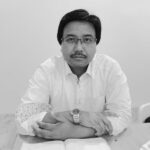
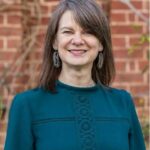
Boonsuchada Inthapat
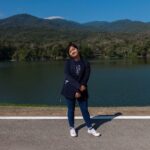 Research assistant who graduated in environmental engineering. Working on a project named ” Carrying heritage buildings as part of urban regions into a modern and energy-efficient society (CHARMS)”.The project aims to develop strategies for building thermal comfort of heritage buildings in the downtown area of Chiang Mai, Thailand.
Research assistant who graduated in environmental engineering. Working on a project named ” Carrying heritage buildings as part of urban regions into a modern and energy-efficient society (CHARMS)”.The project aims to develop strategies for building thermal comfort of heritage buildings in the downtown area of Chiang Mai, Thailand.
Camelia May Li Kusumo
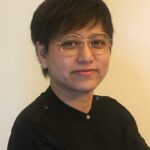
My name is Camelia Kusumo. I am from Indonesia. I am a lecturer and Programme Director for Postgraduate in the School of Architecture Building and Design of Taylor’s University. I am also the project leader for 2 urban heritage research projects in Malaysia.
Carmela Biag
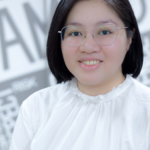
At the moment, Carmela is engaged as an Architect for the Department of Transportation – Railways Sector. Part of her current responsibility is to draft the Cultural Heritage Properties Management System to guide the sector for future projects in the protection of culturally significant properties and zones. Previously, Carmela has worked in architectural design consultancy, and project management.
Chandra Prajapati
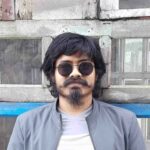
I am Chandra Prajapati, an architect based in Kathmandu. As a professional architect I have been involved in designing and execution of projects ranging from landscape design, architectural design, interior design, architectural conservation, planning and regeneration projects. I believe more in design that reflects the context and which adds more values to the site, surrounding and users. Besides, my interest lies in heritage studies and community development whereas I am an intangible cultural heritage practitioner myself.
Ein Dray Pyone Han
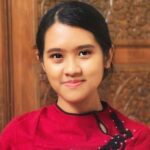
I’m Ein Dray Pyone Han from Myanmar. I don’t have a proper academic background of heritage conservation and management however, I participated in a number of cultural mapping and urban heritage exhibition projects. Now, I’m a research associate at a local social research organization.
Fatima Nicetas Alonzo
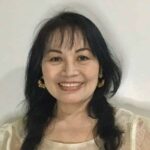
Good day! I’m Fatima Nicetas Alonzo from Vigan City, Philippines, a UNESCO World Heritage Site in northern Philippines. An Architect and Environmental Planner by profession, with PhD in Environmental Studies, I am Dean of the College of Architecture of the University of Northern Philippines, a state university in the same city. My expertise and passion are heritage conservation and Vigan architecture; I sit down as member of the Vigan Conservation Council representing academe; main contributor of the UNESCO Homeowners’ Preservation Manual for Vigan City, drafted the Vigan Conservation Code, undertook inventory of more than 120 ancestral houses and heritage structures in Vigan City and Co-Team Leader in the Formulation of the Vigan Master Plan for the Rehabilitation of the Historic Center of Vigan (1999-2003).
Gan Yi Reng

As the Senior Associate of Think City’s Urban Mechanics, Gan specializes in stakeholder management and public realm improvement, working with various stakeholders from community to the authorities.
He led the Coronation Avenue project, a streetscape improvement in Downtown Johor Bahru which promotes the human centric experience within the state capital’s city center. The project covers community participation, content creation and activation beyond the nature-based solution physical works.
Trained as an electronic engineer, Gan often tries to rewire and connect the urban circuits that contribute to community focused urban rejuvenation organisation He is also a member of Placemaking Malaysia.
Hnin Eaindra Lwin
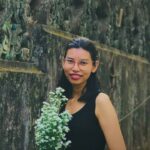
I am Hnin Eaindra Lwin from Myanmar. I graduated with a bachelor’s degree in architecture in 2019 and am now working as an assistant architect, where I participated in the restoration and renovation of historic structures.
Jeny Shrestha

Jeny Shrestha is an architect, urban planner, and heritage conservation enthusiast. Currently, she works as an associate expert in Urban Development and Heritage conservation sector at the Kathmandu Metropolitan City – City Planning Commission, providing technical support and strategic advisory to the Mayor of Kathmandu Metropolitan City. At present, she is working on the preparation of a Master Plan for the urban regeneration of the World Heritage Trail connecting 2 World Heritage Sites: Swayambhu and Hanuman Dhoka Durbar Square.
Kamini Ramachandran

Kamini is an oral storyteller based in Singapore. As a storytelling artist her practice intersects with intangible cultural heritage. For the last 20 years she has worked towards reviving the art of oral storytelling and creating opportunities to ensure it’s sustainability. Kamini is director of Moonshadow Stories, founding director of The Storytelling Centre Ltd and creative producer of StoryFest Singapore. @kaministoryteller
Keith Tan Kay Hin
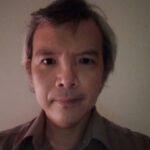
School of Architecture, Building and Design, Taylor’s University in Selangor, Malaysia
Koh Kai En
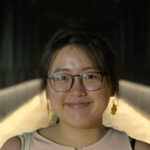
Hi, I’m Kai En and I’m with the National Heritage Board, Singapore. My current focus is on the tangible heritage of Singapore.
Laya Boquiren Gonzales
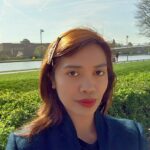
Laya Boquiren-Gonzales is the former Deputy Executive Director of the Nayong Pilipino Foundation under the Department of Tourism where she contributed to institutional reforms and co-created and led the programs and projects on the Foundation’s ethnographic collections, research initiatives on heritage tourism, capacity building in cultural leadership, and planning for a cultural hub near a RAMSAR site. Boquiren has a Doctor of Philosophy in Philippine Studies from the University of the Philippines Diliman Tricollege Program and is currently part of a research project on stakeholder cooperation in UNESCO Creative Cities in the Philippines. She currently teaches at the University of Asia and the Pacific and is a new member of the ICOMOS Philippines Sustainable Development Goals Working Group.
Lio Chee Young
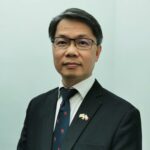
A lawyer practising in Penang, Malaysia who is interested in cultural heritage conservation.
Actively involved in local associations in promoting Chinese culture and heritage.
As a Chairman of the Restoration Committee of the Thai Pak Koong Temple, King Street, Penang who has worked with a conservation architect and contractors to restore the temple which is more than 200 years old and won the Award of Merit, UNESCO Asia-Pacific Awards for Cultural Heritage Conservation, 2021.
Lo Kung Yin

I’m Ian from the National Heritage Board of Singapore. My work involves safeguarding Singapore’s intangible cultural heritage and built heritage, promoting our heritage precincts and businesses, as well as UNESCO-related engagements. My background is in urban planning, with a focus on urban history as well as long-term planning. In my free time, I enjoy travelling and learning languages (currently learning Russian and German!).
Marlyn De Lazo Bulayo

I am Marlyn Bulayo, from Baguio City, Philippines. I am TIAF Secretariat of Tam-awan Heritage Village and currently an in-house visual artist. I am also currently an offshore and freelance Web Designer and Developer.
Meeza Ubaid

Meeza Ubaid is an architect and cultural heritage professional, she graduated from Comsats in 2015 and she did her Masters in World Heritage and Cultural Projects for Development (Awarded CumLaude) from ITCILO, Torino, Italy in 2019. Her forte is cultural heritage management and safeguarding the Intangible Cultural Heritage of Communities, Groups, and individuals ranging from the Building Crafts to the more nebulous folk oral traditions, poetry, and stories. Having trained as an architect she has developed methodologies to ascertain the associated ICH of the heritage buildings and premises. She has over seven years experience working both with tangible and intangible cultural heritage, marginalized and minority communities. Associated with THAAP since 2015, Meeza has participated in many of the significant projects of the Group, she also serves as a visiting Lecturer at Indus Valley School and the National Engineering University (NED), Karachi. She is also working as a Cultural Heritage Consultant at Marine Archaeology Heritage Institute Karachi (MAHI), investigating the intangible heritage of the fishing villages on the Indus delta, Pakistan.
Muhammad Imran Zahid

Muhammad Imran Zahid is from Pakistan and works as a conservation engineer among one of the World Heritage Sites in Pakistan i.e. Rohtas Fort.
Nguyen Minh Tam

I am Tam Minh Nguyen. I am living in Hanoi, Vietnam.
I am doing an internship in UNESCO Hanoi
I’ve worked as tour guide for 2 years (1 year full time)
Because of covid 19 epidemic , tourism in Vietnam is frozen. I decided to do the internship for more knowledge and maybe a career change at a more professional/international environment.
Nguyen Anh Thu
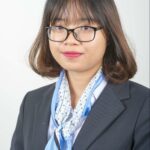
Hello, I’m Anh Thu from Hanoi, the capital of Viet Nam, I’m currently a cultural intern of Unesco Office in Hanoi, Vietnam. With a background as a student in hotel and tourism management in France, I look forward to learning and improving my knowledge through this course, Sustainable Heritage Management.
Paula Nelson
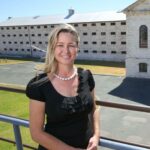
Paula has been an active supporter of Western Australia’s tourism industry for over 30 years, with 20 years’ experience in heritage tourism. She is a wife, mother of two (girl 16 and boy 14), and has two dogs.
As the Director of Fremantle Prison, the only built World Heritage site in Western Australia and the only World Heritage listed attraction in Perth, Paula is responsible for delivering conservation strategies for the former prison and its artefacts, as well as tourism opportunities, interpretation and educational experiences.
Her key focus areas at the Prison are:
· Securing additional staff, development and conservation resources to fund initiatives detailed in the Fremantle Prison Master Plan
· Complete the Heritage Management Framework
· Minimising risk
With a passion for good business governance and delivering excellent visitor experiences, Paula has led a number of businesses to awards success, including multiple Western Australian Tourism Hall of fame entries for Exmouth Backpackers and Fremantle Prison, and an Australian Tourism Award win for Fremantle Prison in 2017. In 2019, Paula won the Western Australian Telstra Business Womens’ Award (Public Sector and Academia category). To further develop her skills in sustainable heritage management, Paula completed the UNESCO Think City Sustainable Heritage Management Course in 2021.
Punto Wijayanto
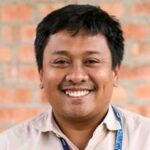
Punto Wijayanto is lecturer at the Department of Architecture, Universitas Trisakti Jakarta and also active member of Bumi Pelestarian Pusaka Indonesia (BPPI); ICOMOS Indonesia. He works as heritage consultant, in heritage city, heritage management and planning, Historic Urban Landscape approach and Heritage Impact Assessment. He obtained master’s degree in urban and regional planning from the Department of Architecture and Planning, UGM Yogyakarta.
Rani Prihatmanti
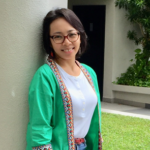
A senior lecturer in Universitas Ciputra (UC), Surabaya – Indonesia and recently appointed as the Vice-Director of the UC Centre for Creative Heritage Studies. She is currently a PhD student in Universiti Sains Malaysia (USM) Penang majoring in interior design of Peranakan Chinese houses related to multi-sensory experience. Her research interests are intangible cultural heritage (ICH), traditional architecture and its symbolism, adaptive reuse heritage building & human comfort, cultural foods as well as ethnobotany.
Richard Gavina Castor

Richard Castor is the Director for the San Miguel Bay Research and Innovation Center and Faculty Member of the College of Arts and Sciences at Central Bicol State University of Agriculture, Philippines. He believes that education can revolutionize notions of sustainable development- schools and learning spaces as catalysts for change in shaping future leaders. Richard teaches both in formal and community settings at the intersections of inclusivity (lifelong learning), creativity (culture and arts) and sustainability (environment, community engagement, creative industries).
Sathashivam Logaraj
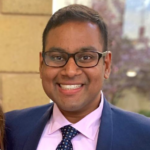
1) I manage Singapore’s Inventory of Intangible Cultural Heritage – where we list, identify, research and document living traditions, and aim to safeguard Singapore’s intangible heritage.
2) I research issues related to Intangible Cultural Heritage and collaborate with other international ICH partners to better manage and safeguard heritage for the future.
3) Outside of work, I’m an aspiring historian with a keen interest in imperial history (and it’s lasting effects on contemporary culture and heritage), seeking to embark on a PhD in 2023.
Soehardi Hartono
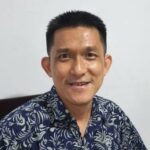
I am Soehardi Hartono, running my own practice as an architect, conservation architect and urban designer based in Medan, North Sumatra, Indonesia. I undertook an apprenticeship at Laurence Loh Architects in 1997, then completed a postgraduate course in Inner City Renewal and Cultural Heritage Management at IHS Rotterdam in 1999 and earned a Master of Science degree in Urban Design at TU Delft, The Netherlands in 2002.
I am also active at ICOMOS Indonesia as a president and in Sumatra Heritage Trust serving as a member in the Board of Advisors.
Su Su
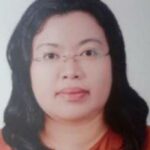
Su Su was fascinated a lot by the historic buildings and areas of shared heritage. She received a Ph.D. from Yangon Technological University in 2006 by looking at the urban management system of the “Historic Centre of Yangon” and did her post-doctoral research work on the heritage management system of “Historic Centre Vienna and Budapest” at Vienna University of Technology in 2008 and 2009. She actively participated in the drafting teams of “Management Parts of Nomination Dossier and Property Management Plan of Pyu Ancient Cities”, “Management Parts of Nomination Dossier of Bagan”, “Myanmar National Building Code” and a consultant team for “Mandalay Building Urban Resilience Project”, etc. She is a member of Mandalay Heritage Society and President of ICOMOS Myanmar. Her areas of interest for further research are on 20th century architectural heritage in urban areas, adaptive reuse of heritage buildings and the issues concerning the new initiative historic urban landscape (HUL) concept, especially on those reflecting on historic city centres of South East Asian Cities.
Suon Sovann
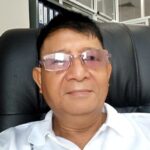
Ministry of Culture and Fine Arts, Cambodia
Sutsan Suttipisan
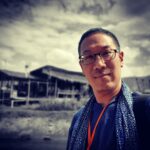
Director of Ph.D. Program in Hospitality Industry & Tourism Management, Graduate School, Kasem Bundit University specializing in tourism development administration. Experienced both area-based and value-based research, as well as cultural heritage management ranged from local communities to international collaborations.
Teo Shen Yao
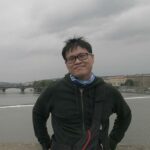
I am an Architectural Consultant and Monument Inspector from the Preservation of Sites & Monuments (PSM) division in the National Heritage Board. My work involves being an advocate in the protection of Singapore’s national monuments. With my architectural expertise, I provide advice and recommendations on the preservation of monuments and sites with national significance, which commemorate our Singapore heritage.
Thet Thinzar
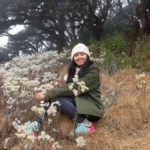
I work as a program assistant in Yangon Heritage Trust. I have experienced heritage building renovation projects as a team member of YHTST. I want to expand my knowledge about heritage conservation, want to understand how to transform a sustainable model as a heritage building and want to perceive the subsequent changes of the Blue Mansion of Penang along the time frame. So, I joined the Sustainable Heritage Management Masterclass of the Think City Institute.
Wan Pow Chween
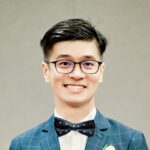
As an architectural consultant with National Heritage Board Singapore, I provide advice and recommendation on the proper preservation, restoration, and maintenance of monuments and sites gazetted as National Monuments.
Yinghong Cai

I work at the National Heritage Board, Singapore, under the Heritage Research and Assessment Division – which oversees the safeguarding of archaeological, built and intangible heritage in Singapore.
I currently manage archaeology projects and initiatives.
I am passionate in championing the safeguarding of arts, culture and heritage in today’s world.

